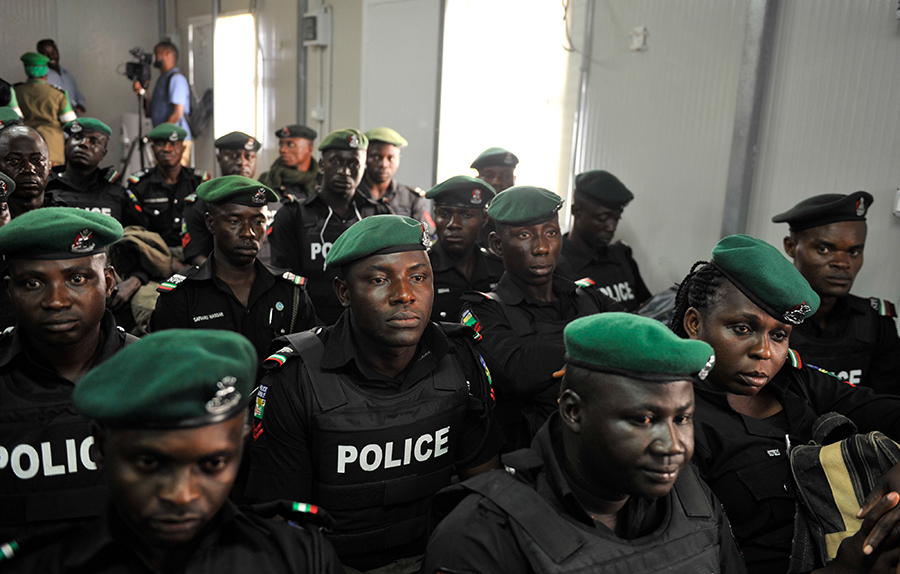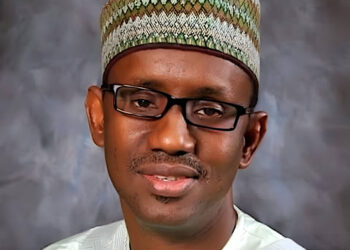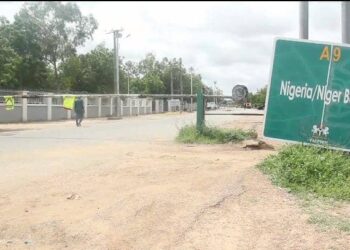The growing state of insecurity in Nigeria and recently the rise of the “ unknown gunmen” has been a cause of alarm for stakeholders in Nigeria, as the Presidency’s promises seem to be accompanied by inaction, leading to talks of solutions through constitutional reforms by some Governors.
Reacting to news of the kidnapped students of Greenfield University in Kaduna last month, President Muhammadu Buhari said that the FG will continue the fight against banditry and urged Nigerians to show empathy and come together as a society. It would appear, from this statement that Nigeria may be running out of centralized state capacity to deal with the menace that has seen violence erupt all over the country.
Killings so far
SBM Intelligence, a socioeconomic and research firm recently released its data on Media reported killings in Nigeria, Q1 2021 which shows that 1,309 civilians were killed in Nigeria in the first quarter of the year, while 682 terrorists were killed the same period.
Borno State accounted for the largest share of deaths at 767, with the North West having the most number of reported deaths at 957, while the South West had the least at 175.
On killings by the police, the firm reported that between 7 January 2015 and 22 March 2021, a total of 497 policemen were killed in 554 different incidents in Nigeria. 1,175 other people were killed in these incidents.
State Governors’ solution
Governors of the South Eastern region, in a joint meeting held last month to discuss the growing rate of non-state backed killings on police checkpoints in the region, agreed on the need for state police, while revealing the state-backed security outfit, the “ebube Agu,” modelled after the Amotekun of the South West.
Governor Dave Umahi of Ebonyi said: “The meeting is in support of restructuring, the setting up of state police and other national issues as discussed at the last NEC meeting.
A committee has been set up to work out acceptable modalities and submit the same to NEC in its next meeting,” he added.
The simultaneous agreement by the Governors is a sign that State and regional government may have given up hope on Abuja coming to their rescue as the military is obviously stretched thin across the country. In addition, falling FAAC and oil revenues means that the governors will need to step up in the fight against insecurity in order to provide residents of their states with a safe and conducive environment to engage in economic activities that will improve the IGR of each state.
FG’s solutions
The Federal Government’s approach has been diverse, from calling for a dialogue with citizens through town hall meetings to calling for international aide in the fight, admitting Nigeria’s capabilities are limited in the fight against insecurity.
The FG announced last month that it will launch town hall meetings to address the twin issues of insecurity and its concomitant effect on national unity and cohesion, “The correct starting point towards addressing these myriads of problems is the building of an “elite consensus” on the security, unity, indissolubility, and peaceful existence of Nigeria.
Such elite consensus had worked in the past. Can we make it work now and proffer solutions in order to stave off the threats to our unity as a nation?” Lai Mohammed, Minister of Information said.
At the Legislative level, Senator Ali Ndume insisted that the Federal Government needs to increase its total military spending to be able to tackle the rising insecurity in Nigeria, “The number one priority is ammunition and those are lacking. They are not sufficient,” the Senator said.
Meanwhile, President Muhammadu Buhari petitioned the US Government to consider re-locating the AFRICOM HQ from Germany to Africa. Citing that it will bring the US Armed forces closer to the “theatre of operations” in the face of growing security challenges in West and Central Africa.
Nigeria’s approach towards insecurity has been more of a fire brigade response with no bite, and with the growing state of insecurity plaguing the nation, the effects would also be felt economically.
Is State Police the answer?
Ikemesit Effiong, Head of Research at SBM Intelligence said it would be a major boost as it would offer more decentralized and local focus towards regional fight against insecurity.
“State policing will be a significant step in the quest to improve security in the country. Policing is far too centralised and monolithic in a diverse, multi-ethnic federation as Nigeria and it is impossible for a police force based in Abuja to adequately understand and determine security priorities in cities, towns, and villages which have varying policing needs and concerns,” he said
“That’s why policing is largely local in almost every other part of the world. State policing will largely eliminate the so-called ‘stranger policing, stranger problem’ because, under that structure, local officers with on-the-ground knowledge will be free to allocate resources unencumbered by priorities and decision making from central planners. This doesn’t mean that the Federal government will be fully absolved of security management; a residual federal police force will be required to deal with certain types of ‘specialised’ offenses as well as offenses that cross state lines,” he added.
The process towards achieving state policing
He adds from a legal perspective, a constitutional amendment is necessary for the current system of exclusive federal policing to be overhauled.
“Politically, there must be an alignment of purposes and outcomes by the states. They will be required to invest heavily in retraining, rearming and retooling their new police forces as well as provide competitive compensation and welfare benefits in order to boost morale and guarantee desirable outcomes. Finally, close coordination with federal authorities in ensuring minimum training standards and standard operating procedures will be required,” he says.
Causes of “Unknown Gunmen” crisis in Southern Nigeria
Effiong disclosed that the security crisis in southern Nigeria is a coalescence of a multiplicity of factors, including the importation of security issues from central portions of Nigeria; the radicalisation of separatist and ethnic militias in parts of the south-east, a development for which the federal government is complicit; the lethargic response of federal and state authorities in addressing deepening ethnic tensions in the south-west; ready access to a large and cheap pool of small arms and light weapons; the extensive track record of politicians arming and empowering armed gangs for their narrow political purposes; and worsening economic conditions deepened by two recessions over the last five years and a high underemployment/unemployment paradigm.
“Over the past few months, increased attacks on military and police installations and personnel in the south-east represent a worrying escalation of the appetite of these armed gangs to directly confront symbols of state authority in a region where the government has a serious (and hitherto unaddressed) credibility issue,” he adds.
Bottomline
It is fair to conclude that the worsening economic climate has created a vacuum of chaos that has seen nonstate actors fill the roles of a legal government, leaving large parts of Nigeria only legally governed,and creating a recipe for violence. This growing concern has also added to the continuous radicalization and expansion of militant and terrorist groups across the country, creating the need for regional state Police to deal with the issue effectively.
The State Police will not also come easily as Abuja has shown it will rather deal with foreign boots and drones than consider a constitutionally backed state police. The process will, therefore, require lots of negotiations at all levels of government to see the actualization of the institution and give states the needed power to deal with the rising insecurity in the country.























